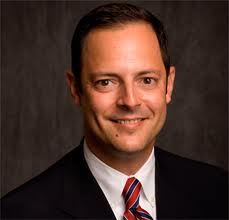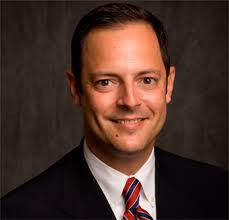 A conservative group’s claims that a bill to allow same-sex adoptive parents to have both names on birth certificates would affect everyone’s records were mainly unfounded, according to research by PolitiFact Texas.
A conservative group’s claims that a bill to allow same-sex adoptive parents to have both names on birth certificates would affect everyone’s records were mainly unfounded, according to research by PolitiFact Texas.
The nonpartisan politics fact-checking project analyzed claims Texas Values President Jonathan Saenz made on Austin’s KTBC-TV Nov. 19 about HB 201 filed by state Rep. Rafael Anchia, D-Dallas.
Saenz said the bill would mandate a change in all birth certificates in the state, suggesting that the bill aims to grant gay couples special rights and would lead to two or three fathers listed on certificates in cases of polygamy.
But the bill would only apply to adopted children of same-sex couples, allowing both parents to have their names on the supplemental birth certificate. Texas law currently only allows one man and one woman to be listed on birth certificates, but the bill would remove that requirement from the Texas Health and Safety Code.
PolitiFact found Saenz’s claims “mostly false” saying the potential wording of forms remained unclear after they consulted with a State Health Services representative, who said it’s unknown whether “Mother” and “Father” would be replaced with “Parent 1” and “Parent 2” on forms for adopted children if the bill passes. Gender-neutral parent designation on birth certificates would raise the risk of distinguishing records for adopted children, which is prohibited under state law.
When contacted for a comment, Saenz declined to speak to Dallas Voice, referring the paper to a Texas Values blog post about the PolitiFact conclusion that praised the state for upholding his previous comments.
“We rightly voiced our concerns about HB 201 a few weeks ago and were viciously attacked by claims that we didn’t have our facts straight,” the post reads. “But now a state agency has confirmed, HB 201 will affect all birth certificates, requiring more than 20 forms to be changed to comply with this ‘gay-rights’ bill.”
However, PolitiFact found “nothing in the proposal explicitly removes mother and father entries on certificates and it seems reasonable to us that any needed tweaks could be made without Moms and Dads vanishing from them.”
Anchia said he would leave it up to the state agency to decide on the wording “in the way that is least disruptive but at the same time gets at the intent of the bill” if it passes in the upcoming legislative session. This is at least his third time to file the bill, which has never made it out of committee.
“It could have more accurately been written that they were all false and that there’s one small piece of it that’s unclear,” Anchia told Instant Tea, referring to the PolitiFact analysis. “Because the state agency didn’t know one way or another, I think Jonathan Saenz was at the very best reckless with his use of the facts and at worst he was lying in a cynical attempt to scare people about the bill. And I’m really happy that PolitiFact called him on it.”
PolitiFact checked with two legal experts who agreed that the bill wouldn’t impact the current system except to allow two people of the same sex to sign adoptive birth certificates.
“Other states do it effectively so there’s no reason to suggest that Texas couldn’t,” Anchia said. “Kids deserve to have their family accurately represented on a supplemental birth certificate.”
Equality Texas Executive Director Chuck Smith brought Saenz’s comments to PolitiFact’s attention. He said he was pleased the project called him out his factual inaccuracies, disagreeing that any forms need to be changed.
He said the bill isn’t requiring any forms to be changed. It’s trying to revert the language back to before a change in 1997, when mother and father were only used but a gender for each wasn’t specified.
“No one is asking for gender-neutral forms,” he said. “It should be a quick administrative fix.”
The birth certificate bill has gained a lot of attention recently. Smith said that was due to the opposition trying to cast an inaccurate light on the true intention of the bill, as well as Equality Texas’ continued work in bringing the bill to the public’s attention.
Anchia’s bill is one of four pro-equality bills currently filed for the 83rd Legislature that convenes Jan. 8.
State Rep. Mike Villareal, D-San Antonio, filed HB 238 to prohibit employment discrimination on the basis of sexual orientation or gender identity or expression. Sen. Rodney Ellis, D-Houston, filed SB 73 that would prohibit insurance discrimination based on sexual orientation and gender identity and expression. In the state House, state Rep. Senfronia Thompson, D-Houston, filed HB 226 to prevent insurance discrimination.
Chuck said other bills expected to be filed are a bill that would facilitate the change of gender markers on state identity documents, a repeal of the state’s marriage amendment and the repeal of the homosexual conduct law, which was declared unconstitutional in 2003 in Lawrence v. Texas but still remains in the penal code. Another anticipated bill is one that would fix the discriminatory “Romeo and Juliet law,” allowing the age-appropriate dating defense to apply to gay teens.

















